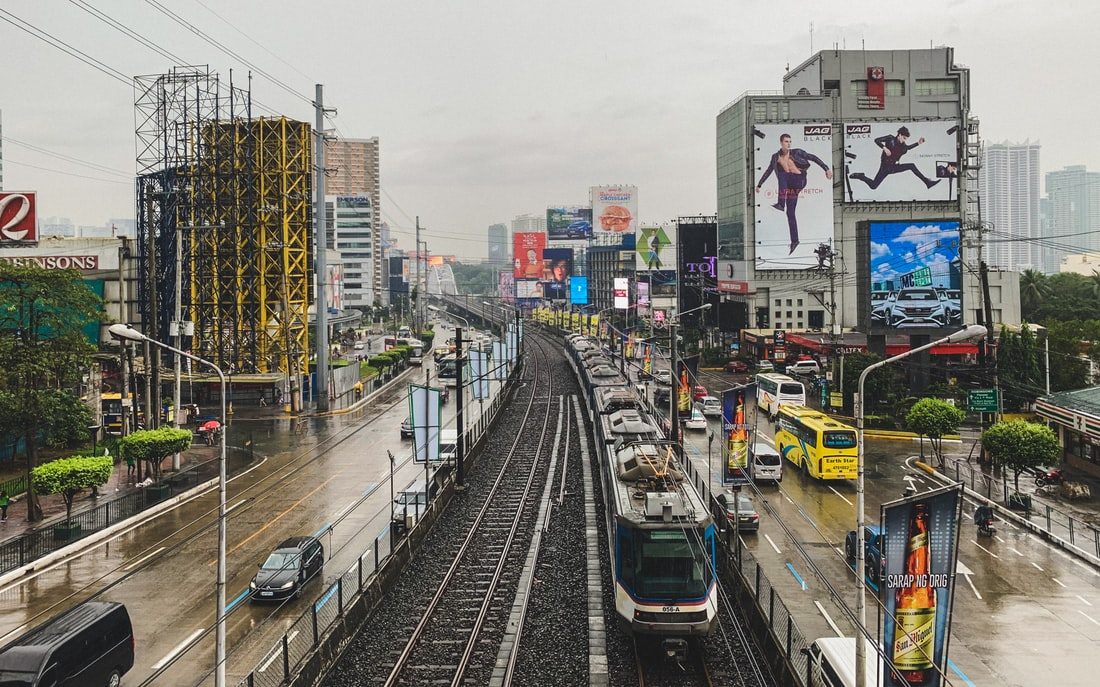SUMMARY
This is AI generated summarization, which may have errors. For context, always refer to the full article.

[Editor’s note: Planning to retire soon? Below is a press release from Paramount Direct.]
MANILA, Philippines – For anyone who’s had to go through the rigors of a 9-to-6 job, the prospect of retirement is a welcoming one. After all, who wouldn’t want to hang up their proverbial hat and enjoy the fruits of their labor? Across contemporary cultures, retirement has become a sort of celebratory milestone, a reward for putting in years of work. However, in the Philippines, retirement doesn’t happen to everybody. Based on the results from a survey, 38% of Filipinos still have a job post-retirement, compared to the global average of 17%.
Enjoying your retirement isn’t as easy as it looks. There are a host of things you need to do to get ready for during the later years of your life, not least of which is achieving financial independence.
The terms retirement and financial independence are often used interchangeably. Financial independence basically means that you have enough money to take care of your basic needs that work becomes entirely optional. This money can come from your savings or your income from your pension or investments.
Retirement in the Philippines
Despite its now ubiquitous presence in modern society, retirement as we now understand it is a fairly recent invention. The Roman Empire paid pensions to those who had served in the military, but the modern concept of retirement began sometime in the 18th and 19th centuries. Life expectancies during this period were slowly increasing, and for the first time aging posed an obstacle to work. Governments began to pay pensions to anyone over 65, with contributions being taken from the employee, employer, and government.
In the Philippines, there is no official retirement age, but the House of Representatives recently passed a bill lowering the government retirement age from 60 to 56. House Bill 8683 amends Section 13-A of Republic Act 8291, or the “Government Service Insurance Act of 1997,” which now entitles government workers who have reached the age of 56 years to file for retirement and be entitled to an old-age pension from the GSIS. Under the Philippine Labor Code, the default mandatory retirement unless specified is at least 60 years but not over 65 years old.
The Commission on Population (PopCom) estimates that the number of Filipinos aged 60 and above is expected to increase by 8.2% in 2019, up from around 7.5% in 2015. An aging population means that many Filipinos have retirement on their minds. But, are Filipinos ready to retire?
A recent survey found that Filipinos only have about the equivalent of 3.6 months of personal income set aside for retirement, far behind the average of 2.9 years for other Asian countries. The survey also found that Filipinos believe that savings equivalent to 2.1 years of personal savings are enough to retire on, much lower than the regional average of 12 years.
Not preparing properly for retirement is a major problem for Filipinos. A 2015 retirement survey found that 9 in 10 (90%) of Filipinos worry about how to stretch their money during retirement. The country ranks only second to Vietnam (95%) in terms of retirement prospects anxiety. But despite these retirement woes, the survey also found that 55% of Filipinos were optimistic about a higher living standard for each new generation of workers.
A study published in the DLSU Business & Economics Review found that young and middle-aged Filipino adults see old age positively as a mark of achievement, but view living through their old age negatively. This contradiction is caused by worries about income security and social pension and insurance. The study found that despite awareness of the health problems posed by aging, financial planning and preparations for retirement were still removed from their present work-life.
Compare this with the state of things in countries like America, where CNBC reports that retirement savings shortfalls are slowly but surely narrowing. American households are running USD $3.83 trillion short of what they need for retirement, a marked improvement when compared with the USD $4.4 trillion that they lacked in 2014. So what can you do to prepare yourself for the later years of your life? Quite a few things, it turns out.
Saving up
While the outlook for Filipinos approaching retirement age seems dire, it doesn’t have to be. With the right preparation and financial planning, you can look forward to a comfortable and worry-free retirement.
The first and most basic thing to do in order to prepare for your life post-work is to simply save up. While the jury is still out on what the exact amount you need for retirement is, most experts agree that saving 10% to 15% of your annual income in your 20s is a good enough baseline.
For those starting a bit late, the percentage jumps up to 50%-60% of your income in your 40s and 50s, so it’s best to start early. Instead of splurging on your next big family trip or the newest phone, it’s more financially smart to simply set aside a small percentage of your money for the future.
If you’re finding it a little difficult to get the ball rolling, you’re not alone. According to the Financial Inclusion Survey conducted by the Bangko Sentral ng Pilipinas (BSP), only a fourth of Filipino adults have bank accounts. However, the number of Filipinos who have set aside money for a rainy day is also on the rise, up from 32.5% in the third quarter of 2018 to 32.8% in the fourth quarter of 2018.
Making investments
Another thing that will help you prepare for financial independence is to start investing. Most Filipinos prefer to keep their money in the bank or in small credit cooperatives, without realizing that they can earn far more by investing in the stock market. In fact, according to the BSP, only around 3% of Filipinos currently invest in stocks, bonds, or mutual funds.
Why the low number? For many Filipinos, lack of knowledge, lack of funds, and fear of the risks may be the main factors. But the benefits of investing are huge, and a little bit of research can go a long way.
For example, by investing in stocks you can combat the effects of inflation on your money, something that a simple savings account can’t do. It’s also not necessary to have millions in the bank in order to invest — you can actually start investing with as little as Php 5,000.
More and more Filipinos see the value of investing, and the numbers prove it. The total number of accounts in the Philippine Stock Exchange (PSE) broke past the one million mark in 2018, as more millennials and middle-income earners have begun to invest. Count yourself among them and begin your investment journey today, and your future self will thank you.
Investing in health insurance
Finally, one of the best things you can do to prepare for retirement is to invest in a good health insurance plan. It’s no secret that as we age, our bodies grow weaker and more susceptible to diseases and illnesses.
Aging is a complex process that affects many people in different ways, but certain things remain constant no matter who you are. As you age, your cells become larger and less able to divide and multiply. Waste products also begin to build up in your tissues, impacting how your organs operate on a daily basis. Lifestyle related diseases such as diabetes, heart disease, and obesity begin to surface, as well as other illnesses such as cancer that may have slipped early detection. Your body’s healing abilities also become less elastic, requiring longer recovery times and sometimes even hospitalization.
With all these health concerns, the chances for hospitalization increase, and that can put a damper on your retirement savings. Based on a report by the Philippine Statistics Authority, household out-of-pocket payments for healthcare topped at Php 372.8 billion in 2017, 54.5% of current health expenditures (CHE). This is compared with government and compulsory contributory health care financing which had 33%, and voluntary healthcare payment schemes at 12.5%.
As you age, the chances of paying for hospitalization costs increase. In order to protect your health and your savings, it’s important to find a health insurance plan that’s specifically tailored to your budget and your needs. Paramount Direct’s PrimeCare Cash Plan (PCP) is designed specifically for people between 50 to 75 years old with coverage up to 80 years old. It has guaranteed acceptance, so there’s no need to spend extra on medical exams. The PCP also offers Daily Cash Benefit, Daily ICU Benefit, and Surgical Cash Benefit, so you can focus on your recovery and not have to worry about lost income during confinement.
You’ll also find yourself protected no matter where you are, as the PCP offers coverage anywhere in the Philippines and around the world. With affordable premiums as low as Php 213 per month and coverage amounts specific to your needs, there’s no better investment for you and your health.
Enjoying your retirement
The state of life after work in the Philippines is complex and dependent on many factors. Research has shown that Filipinos lack the proper preparation for their retirement years, with many falling short of the required savings amount in order to live comfortably. Many Filipinos are also anxious about their life post-retirement, with many continuing to work even past the normal age of retirement.
Despite this, Filipinos remain optimistic about growing old. And with the right preparation, it is possible to live comfortably in your later years. By saving a percentage of your income each year as early as your 20s and 30s, making smart investments, and putting your money in safety nets like health insurance, you can begin the path to a happy and comfortable retirement.
Apply here now. – Rappler.com
Add a comment
How does this make you feel?




There are no comments yet. Add your comment to start the conversation.